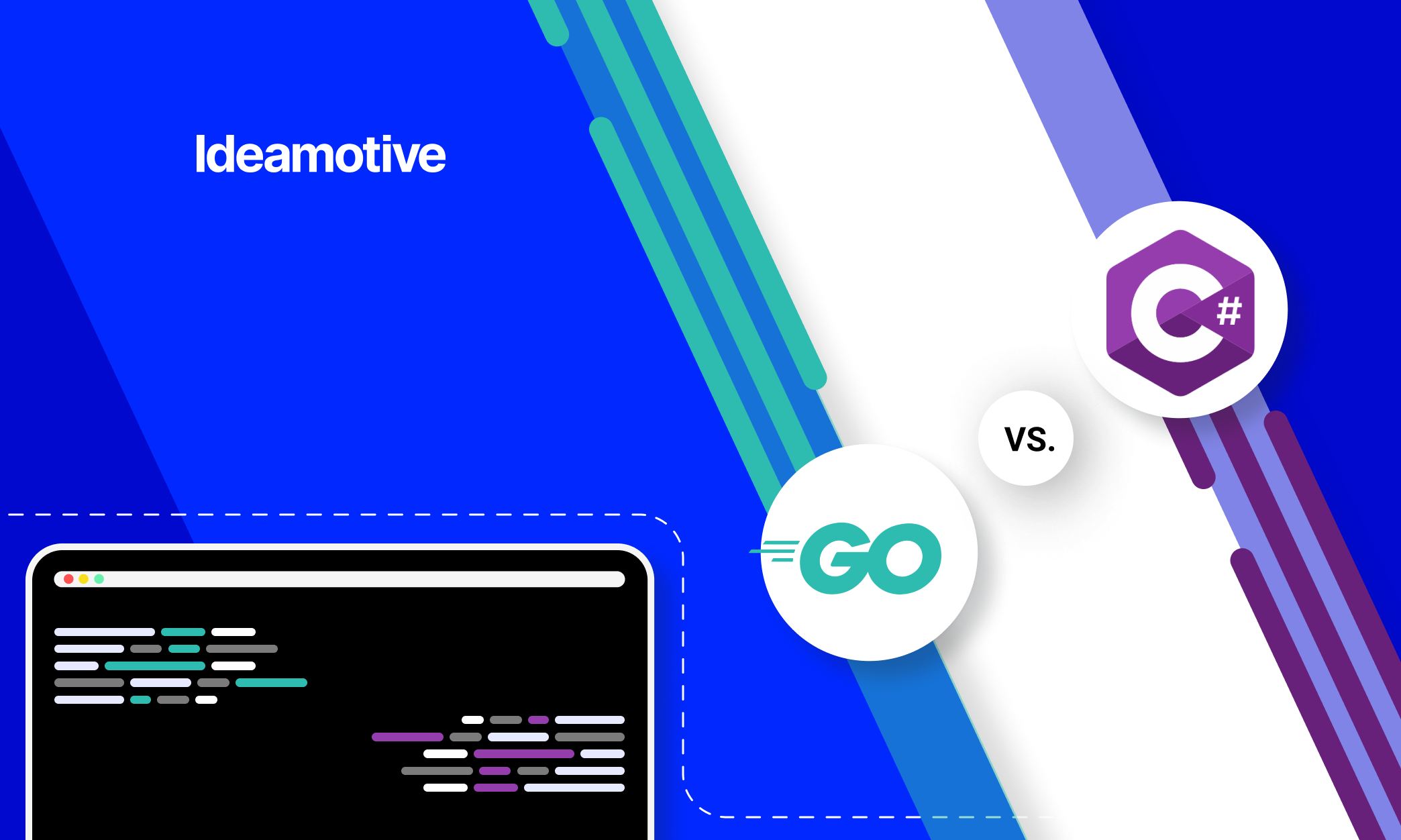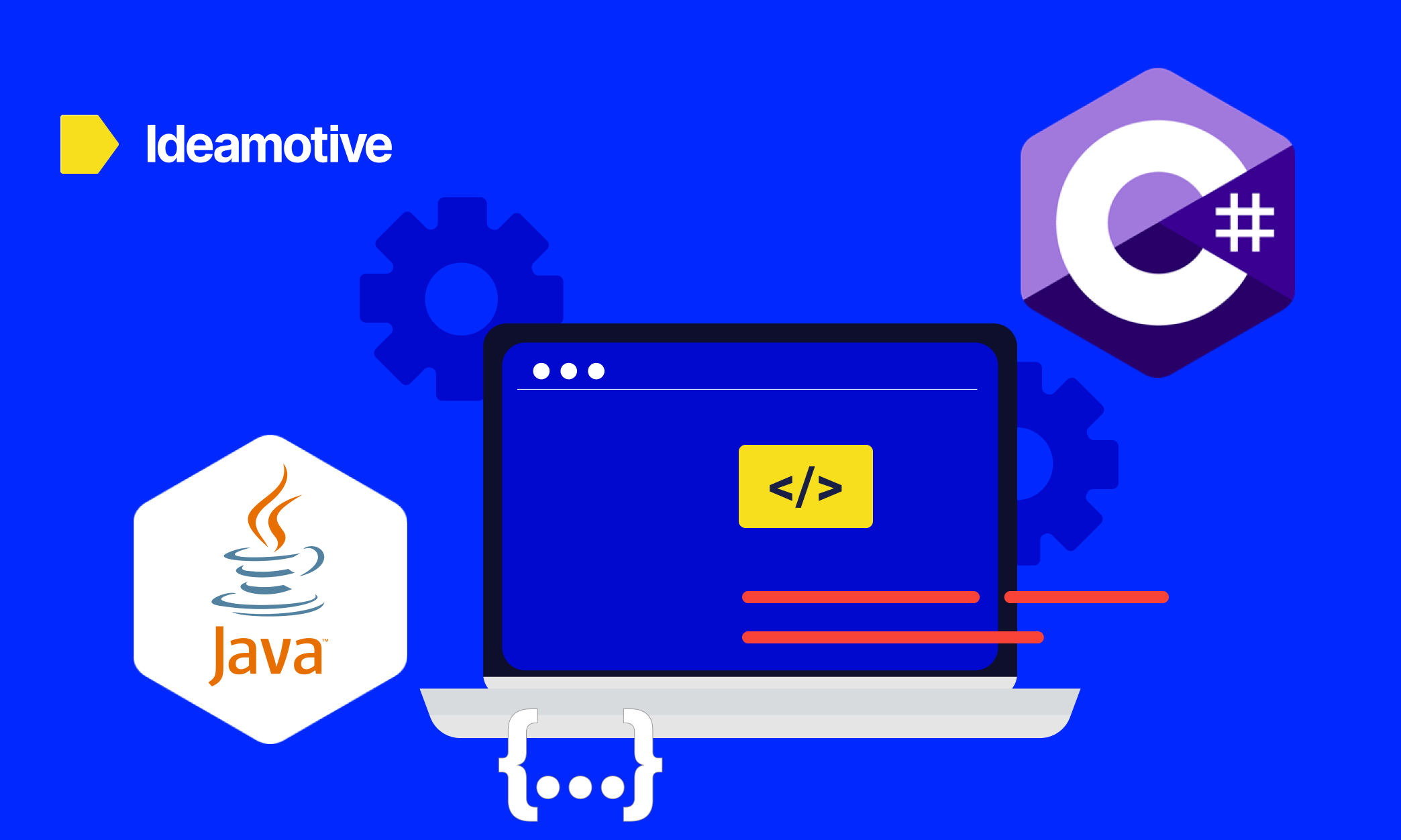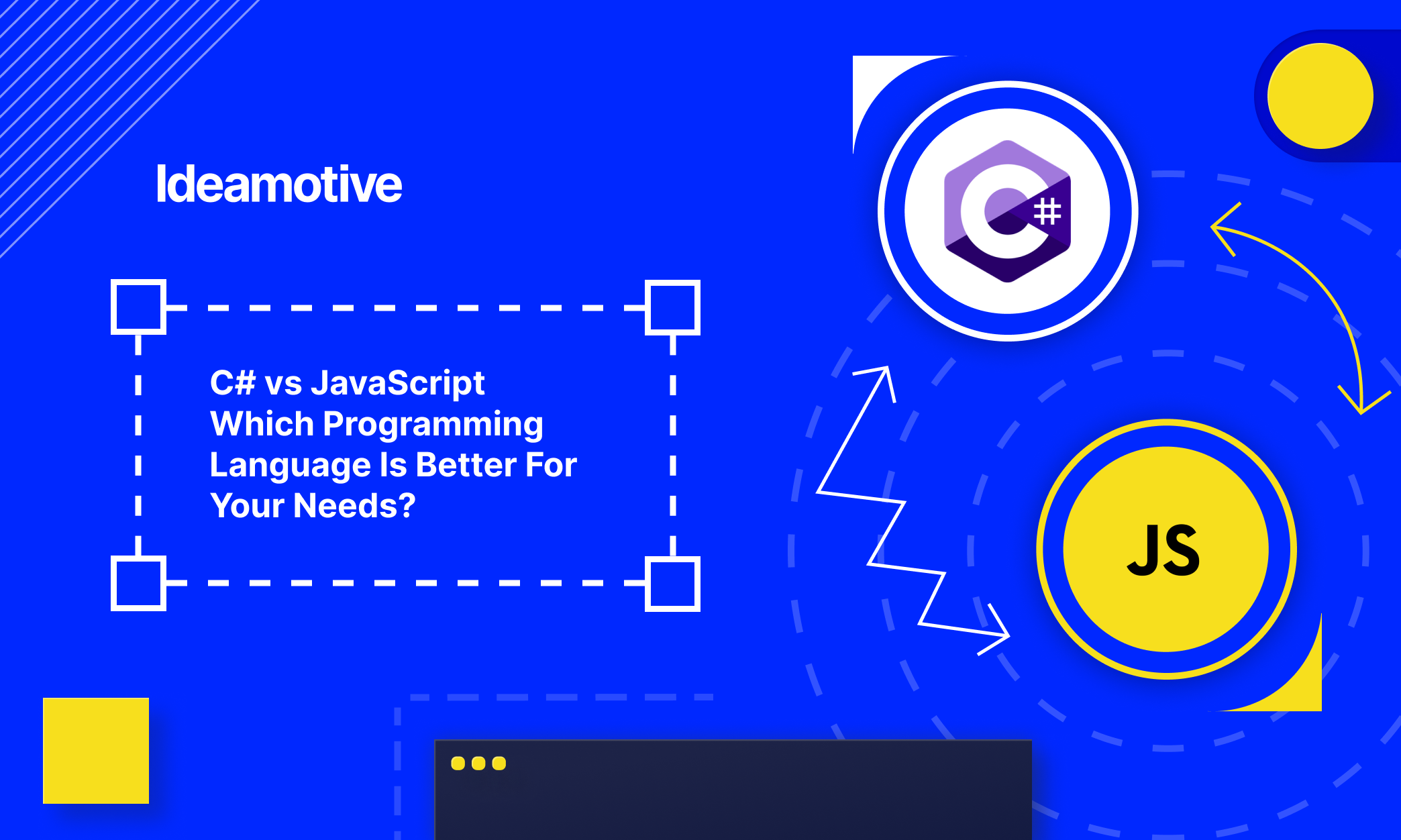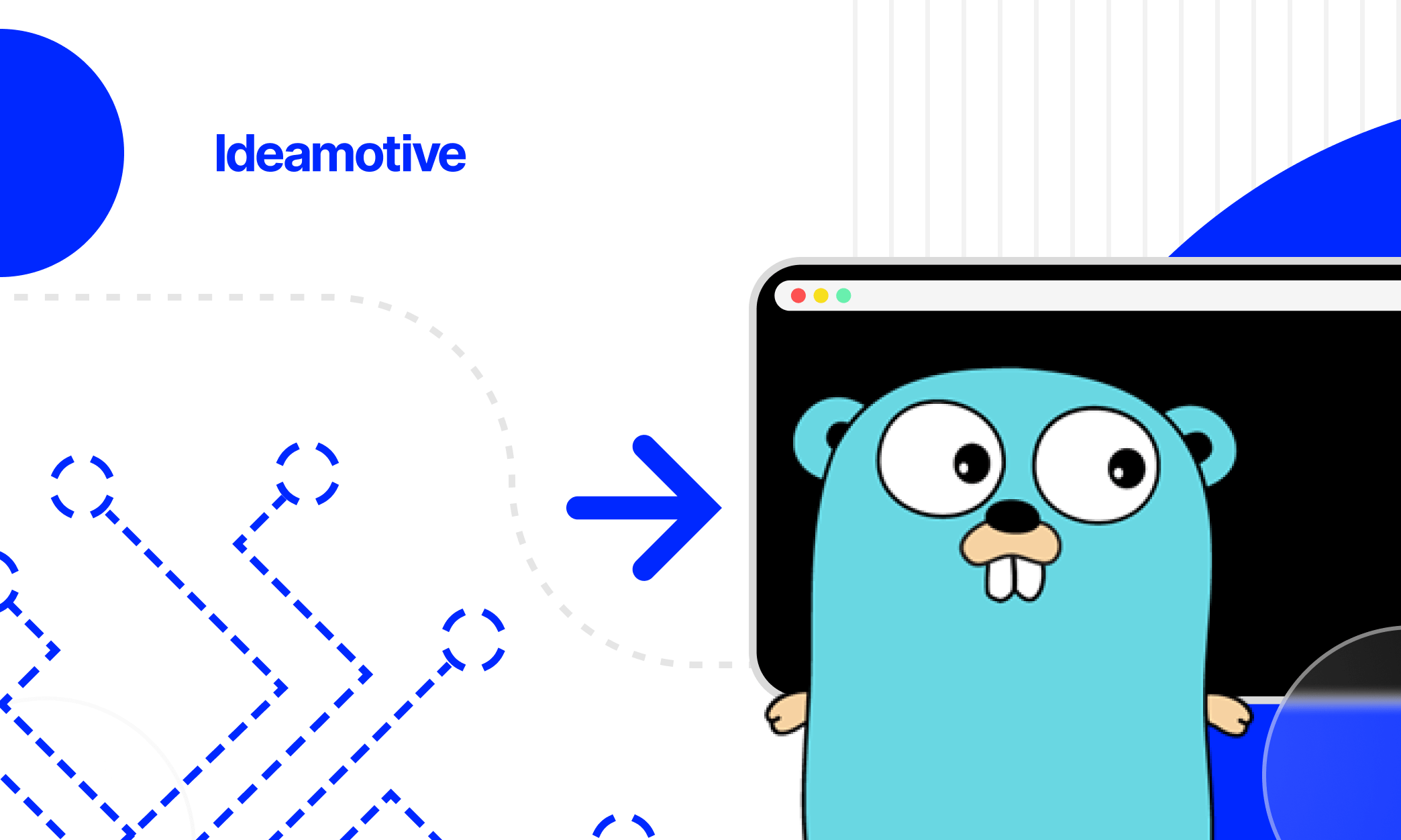C# and Golang are programming languages with similar features but different implementation patterns. Both languages offer similar benefits, but each has its strengths depending on what you want to use it for.
C# is the older of the two programming languages. Microsoft launched it in 2000, and programmers use it for creating mobile, web, and cloud-native apps. Meanwhile, Google built Go in 2009 as a successor to C. Go can handle Google's large network servers without reducing speed, simplicity, and readability.
Due to C# and Golang's similarities, deciding which of them to use for a particular project may depend on the project's requirements. However, each of them may be more beneficial than the other in some instances. It is important to know each language's strengths and weaknesses to make an informed decision when you have to choose between them.
We’ve already written many articles comparing various technologies such as Go vs Rust. And now it’s time to learn more about C# vs Golang. You will know how they are similar and understand their differences. After reading this article, it will be easier to decide between Golang vs C#.
What is Go?
Golang is a synonym to Go, which is a Google-designed open-source, compiled, and statically written programming language. The names Go and Golang usually confuses people. However, there shouldn't be any confusion because Golang is another name for Go, the programming language's official name.
The name, Golang, originated from Go's official website, golang.org. In addition, it is easier to search for Golang than Go on Google. Thus, people searching for information about Go will find it easier using the keyword “Golang.”

Source
What is C#?
C#, pronounced as "C sharp," is a modern, object-oriented programming language. Microsoft's Anders Hejlsberg and his team developed the program, which was a .Net initiative. The European Computer Manufacturers Association (ECMA) and International Standards Organization (ISO) approved the programming language.
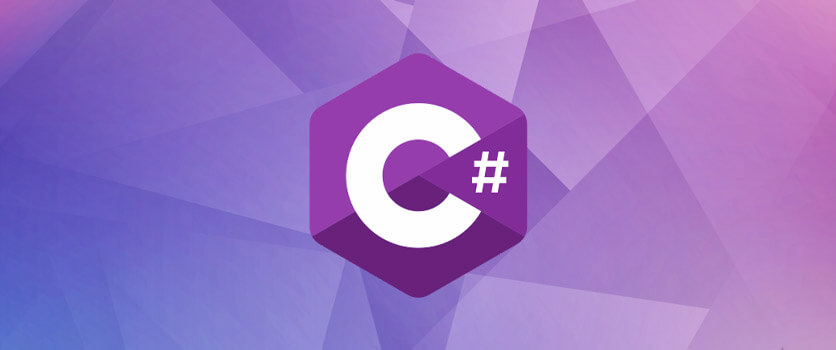
Source
Why Should We Compare Them?
Go and C# should be compared because they are similar programming languages. They also have features that satisfy the requirements for software development. Thus, they are both ideal for solving enterprise service problems.
Go and C# use compilers to create native code and can be used across multiple platforms. In addition, their garbage collection mechanism is extensive. They also support modular programming structures that employ modules and assemblies which is very useful.
These programming languages have C language origins. C# is C-based and has a similar syntax, while Go is C-inspired and has a similar syntax but with easier readability.
Go and C# have a rich collection of base class libraries and accommodate asynchronous operations. Besides these similarities, the programming languages' performance thresholds are also similar.
Based on these multiple similarities, it is only wise to compare Golang vs C# to know how they outperform each other. Also, it is good to understand their capabilities to know when best to use them. Without comparing them, it won't be easy to know how they differ and what they are best for.
Main Comparison Areas
In this section, you will see how Go and C# compare in ten different areas. These comparisons will help you to understand these programming languages better.
Speed of Coding/Easiness of Coding
Go library is created according to the best development standards in the modern world, so it is very simple and easy-to-scale. Go automatically removes unnecessary parentheses, thus developers spend less time typing the code and focus more on the debugging activities afterward.
C# is also quite easy and fast to code with, especially when it comes to its newer versions. The language has autocomplete and dynamic typing features which help to detect errors and speed up the entire coding process
Verdict: Both
Performance
In terms of coding, Go and C# compile written text into machine code. C# compiles codes to cross-platform binaries. These codes need the .NET Core Runtime to run. It is a complex language but also well-engineered. However, Go compiles codes into native binaries bound to the operating system, making it faster and more efficient to code than C#.
In comparing Go vs C# performance levels, you should note that both languages have good performance levels when weighed with other programming languages like Python and Java. However, they differ in strength.
Due to Go's lightweight nature, it excels over C# when it comes to performance. Go has efficient compile-time checks, error handling, and memory management. This is because of the absence of complex codes. The programming language also uses low resource storage, which, combined with static typing, contributes to faster compilation and memory management. Thus, there is a boost in performance despite the presence of a garbage collector and concurrent operations. Unlike C#, which compiles across platforms, Go compiles into the native binary of each machine.
C# utilizes the .Net framework, which determines its performance. The framework powers the programming language's garbage collector and error platform. C# is most optimized on Windows devices and performs exceptionally well on such machines. However, its cross-platform performance is moderate.
C# is more powerful than Go but slower than it mostly because it has heavier features while Go is lightweight. Go has a simpler language that allows it to run fast, whereas C# excels in specific environments.
Verdict: Go
Scalability
Go runs faster because of its compilation features, which also enhance its ability to execute several separate flows. Go also comes with an in-built concurrency feature. Meanwhile, C# is one of the best programming languages if you are looking for a technology that can hold hundreds of thousands of concurrent users.
Verdict: Both
Golang vs C# Features
Golang's major features are its simplicity, consistency, and concurrency. Thanks to its concurrency, it can use multiprocessor architecture without hassles. Also, Go accommodates pointers, enabling references to be passed to values and records. That way, it is easier to track data. Lastly, Go's garbage collector feature can effectively handle memory leaks.
C# provides a structured approach and has a rich set of library functions and data types. It is a modern programming language that is powerful and simple for creating scalable, robust, and interoperable applications. The object-oriented programming language has a type-safety that improves its security and an interoperability feature that allows it to do almost anything a native C++ app does. It is also scalable, updateable, and component-oriented.
Verdict: Both
Popularity
According to the survey of StackOverflow conducted among over 83 thousand developers in 2021, 27,86% of developers use C# and 9.55% of coders utilize Go.
C# is an in-demand programming language. There are many jobs in companies looking to hire C# developers for new or large enterprise projects. C# has a large scope, meaning that it is possible to specialize in several areas within the programming language and use familiar libraries and tools. Lately, C# has dropped in its popularity ratings, but it continues to grow and is widely regarded in game development.
In terms of job availability, there are more jobs available for C# developers than Go developers. Go is used much more for systems work, while C# is preferred for generic commercial software. C# tends to be more popular than Go, but developers fancy both languages and use them to satisfy different needs.
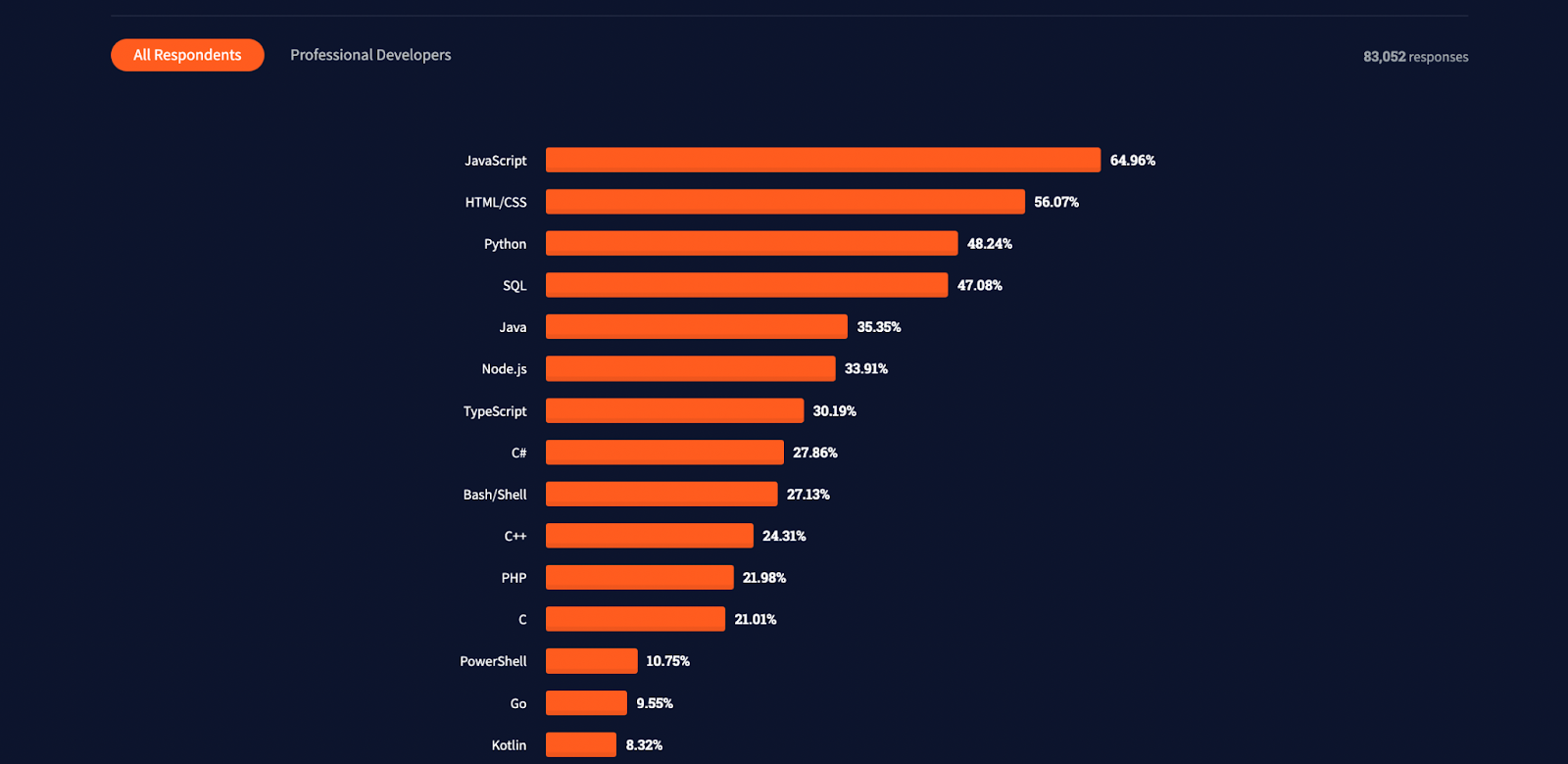
Source
Verdict: C#
Community
The community support of C# is declining over time. Microsoft has attempted to encourage the activity within the community by releasing open-source ASP.NET Core, however, hasn't helped a lot. On the other hand, C# is widely used by big corporations for commercial product development, so there is plenty of informational resources and quality support that can be located.
Go is a relatively new project, thus its community is still very active and excited about the project. There are plenty of open-source libraries and detailed code examples that you can refer to while running into any problems.
Verdict: Go
Talent Pool
According to the 2021 Stack Overflow Developer Survey, C# is the 8th most commonly used programming language, with 27.86% of respondents preferring to use it. Go holds the 14th position, with 9.55% of respondents preferring it as their favorite programming language. Also, 29.81% of professional developers who took part in the survey prefer working with C#, while 10.51% love Go.
Meanwhile, 14.54% of web developers who are not developing with the language expressed an interest to develop with Go, while just 6.54% want to develop with C#. 62.74% of the survey's respondents love Go, while 61.96% love C#.
This data shows that while more people prefer working with C# over Go, more people love Go and want to develop with it than C#.
Verdict: C# (This may change in a few years)
Easiness to Learn/Learning Curve
The syntax of Go is not that vast. Hence learners can quickly get acquainted with its units and functions. Go is procedural and can be a little more rigid and hard for beginners. However, experienced programmers find it easier and use it to complement their knowledge of other languages they already know.
On the other hand, C# is statically typed, meaning that you must change variables independently. C# is a perfectly balanced object-oriented programming language, making it easy to start learning. Beginners start with simple and concise instructions before delving gradually into more powerful tools like Linq and lambda expressions.
Verdict: Go
Security
It is difficult to say which is more secure between C# vs Go, even though C# seems to have an edge. In programming languages, security has so much to do with using a language correctly when writing the code. Whatever programming language you use, ensure you keep to the best practices. These include having the latest tech versions for that programming language, scanning code for errors or malicious material, and updating the servers. There are several threats programming languages face. Thus, you need to protect your codes from such threats and encrypt sensitive information to secure your code and environments. It would be best to employ only professional developers to ensure your code's security.
Verdict: Both
Cost of Development
Several factors affect the cost of development, so it is difficult to say which of Golang vs C# costs more to develop. These factors include task complexity, personal hourly rate, management drawbacks, building a team or outsourcing, and much more. You have to consider these and other factors before saying which one costs more. Rather than estimating the cost, it is best to get a quote from a company or consult a professional.
Verdict: Both
C# vs Go: Pros and Cons
C# Pros
Many advantages come with using C# for programming. These include:
- It runs atop the .Net framework, which provides many libraries with classes for common tasks like displaying a window, editing files, connecting to the internet, etc. This differs from many other languages because, with C#, you don't need to pick from a handful of libraries for small tasks you want to perform.
- C# is a well-engineered language because everything has its purpose while nothing is non-essential.
- C# is an awesome independent development environment for windows.
- It serves as a great introduction to object-oriented programming because it accommodates the most common OOP features like classes, methods, and fields. It also supports features not found in other languages like events, properties, and static classes.
- Despite being primarily object-oriented, C# supports features mostly found in functional languages. These features include lambdas, delegates, and anonymous classes.
- It is a good IDE for cross-platform development.
- It is the best language for Windows programs. Its .Net framework has everything needed to build great apps without resorting to Win32 API or downloading thousands of libraries.
- With C#, you can combine high and low-level programming. It allows you to code at a high level without being bothered about pointers and memory management. You can switch to a lower level of programming with direct memory management and pointer manipulation when you want.
- C# is in very high demand in the industry and is regularly updated. It is versatile, easy to read and write, and has excellent tooling support.
- Many platforms support C#, including Windows, Linux, OS, Apple, Android, and many more.
- C# is a truly universal programming language with .Net core, which supports desktop, mobile, and web apps.
- It has a lot of synthetic sugar, making it easier to understand and write code.
- It has a large community of programmers.
- There are multiple vacancies for C# programmers worldwide.
C# Cons
- It has a Bad GUI x-platform.
- It is less flexible because it depends on the .Net framework.
- It has a complex syntax
- Beginners may struggle with its large library and ecosystem.
Golang Pros
- It is a simple, scalable, multithreaded, and concurrent programming language.
- It has a simplified C-like syntax that is easy to read and write.
- It has API documentation that is rich in content and easy to memorize.
- It promotes programming in a specific conversational style that is less confusing for programmers.
- It has a built-in unit testing feature that tests functions in codes.
- It has tools that help full-stack developers automatically format codes for their entire software project.
- It is easy to install and configure. Also, it is easy to compile the software.
- It is great for building networking services.
- It demonstrates a unique, simple concept to object-oriented programming.
- It generates API documentation for installed packages automatically.
- It supports modules in the form of packages.
- It allows source code to be split into multiple files.
- It allows multiple variables to be assigned on a single line.
Golang Cons
- Performance may slow down due to indirect calls and garbage collection.
- The implementation of interfaces is hard to understand.
- It has no forms designer.
- It is easy to shadow variables.
C# vs Go: When to Use
Due to the programming languages' similarities and the differences in their implementation, knowing when to use either of them is important. Below are what Go and C# are good for.
What Is Go Good For?
Due to Golang's support for concurrency, it is great for handling bottlenecks that inhibit scalability. It has a goroutines feature, which offers concurrency by enabling functions or methods to run concurrently with other functions or methods. Meanwhile, channels, a complimentary feature, links goroutines together. Backend developers enjoy most of Golang's benefits because they can handle heavy requests on the server-side with little memory usage.
Go can be used in applications like distributed network services, cloud-native development, replacements for existing infrastructure, utilities and stand-alone tools, news outlets, media platforms, and on-demand services.
Examples of services that use Go include on-demand platforms like Uber media platforms like Netflix, YouTube, and SoundCloud.
What Is C# Used For?
C# continues to be an in-demand programming language. Initially, only Windows developers were interested in it, but it has been upgraded to work across other operating systems like Mac OS, iOS, Android, and Linux. Following the removal of all possible restrictions on C#'s usage after platform code was made available to everyone, the language has developed actively with more people using it.
C# has a toolkit that allows developers to solve wide-ranging problems. C#'s power and versatility make it a good language to develop web apps, games, mobile apps for Android and iOS devices, and Windows programs.
C# vs Go Comparison Table
| |
C#
|
Go
|
|
Speed of Coding
|
Coding in C# is slower as it's a complex language that compiles codes to cross-platform binaries
|
Go complies codes into native binaries, to coding is easier and faster with this language
|
|
Performance
|
C# utilizes the .NET framework so it performs well on Windows devices but doesn't work so well on other platforms
|
Due to the absence of complex codes, efficient compile-time checks, memory management, and error handling, software written in Go has great performance
|
|
Scalability
|
High scalability due to the ability to hold hundreds of thousands of concurrent users
|
High scalability due to the ability to execute several separate flows
|
|
Features
|
C# offers the right set of data types and library functions
|
Go can easily use multiprocessor architecture, accommodates pointers, and has an effective garbage collector feature
|
|
Popularity
|
Very popular as C# is used for commercial software
|
Not very popular, as Go is used for systems work mostly
|
|
Community
|
Large community
|
Community of a moderate size
|
|
Talent pool
|
Wide as C# is the 8th most used programming language
|
Limited as Go is only 14th most used programming language
|
|
Easiness to learn
|
C# is harder to learn as it's statically typed
|
Go is easy to learn as its syntax is not vast
|
|
Security
|
High level of security
|
High level of security
|
|
Cost of development
|
Depending on the project’s complexity
|
Depending on the project’s complexity
|
Summary About C# vs Go
Although C# and Golang have several similarities, they still differ in implementation and uses. Both programming languages are beneficial but also have their drawbacks. If you are considering the best one to use, it should be based on your goals and the operating environment of the app you want to develop.
If you want to develop a solution that you have to integrate with other C#-based solutions, it is best to write it using C#. Go is better suited to networking, big data, and cloud infrastructure solutions, while C# is best for Windows programs, games, and mobile or web applications.
Still not sure what technology to choose? Consult your project with us. We can provide you with technical consultancy and with experts skilled in both technologies, matched with your product and your industry.
